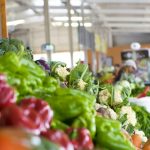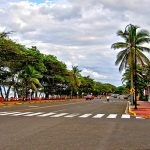EU backs Caribbean sargassum export from Dominican Republic for textile industry

Santo Domingo.- The European Union (EU) Global Gateway project aims to mitigate the impact of sargassum in the Dominican Republic and other regional countries by supporting initiatives like exporting these macroalgae to Europe for use as raw materials in the textile industry.
European Commissioner for International Partnerships, Jutta Urpilainen, highlighted this innovative use of sargassum, noting, “which is a big problem in this area,” and transforming it “into an economic opportunity.”
“We are talking to governments and private companies” to support innovative initiatives that incorporate sargassum into value chains, she noted. However, its use in the textile industry is just one potential application.
During a brief visit to the Dominican Republic to review progress in the transition to sustainable urban mobility, Urpilainen visited the facilities of the Santo Domingo Metro and Cable Car, infrastructures that have benefited from significant European investments and technology.
“The EU is studying, together with the Dominican Government and private companies, how it can not only expand the capacity but also the extension of the public transport network,” she said, emphasizing that sustainable mobility is one of the main focuses of the Global Gateway in the Caribbean country.
In addition to sargassum and transport, the Global Gateway focuses on water and sanitation, digital development, and sustainable finance, all of which will receive substantial economic support from the EU.
In July of last year, the European Union, Latin America, and Caribbean Summit was held in Brussels, where an additional financing package of 45 billion euros (about 48.6 billion dollars) was approved. This package will be dedicated to various investments across the Caribbean, particularly in the energy, environmental, and digital sectors.
Through the Global Gateway, the EU and its Member States aim to collaborate with partner countries to promote sustainable and inclusive economic development, combat the climate crisis, and advance digital development that benefits people.
The strategy seeks to bolster private investment in priority sectors for partner countries, while respecting environmental standards and human rights.
















